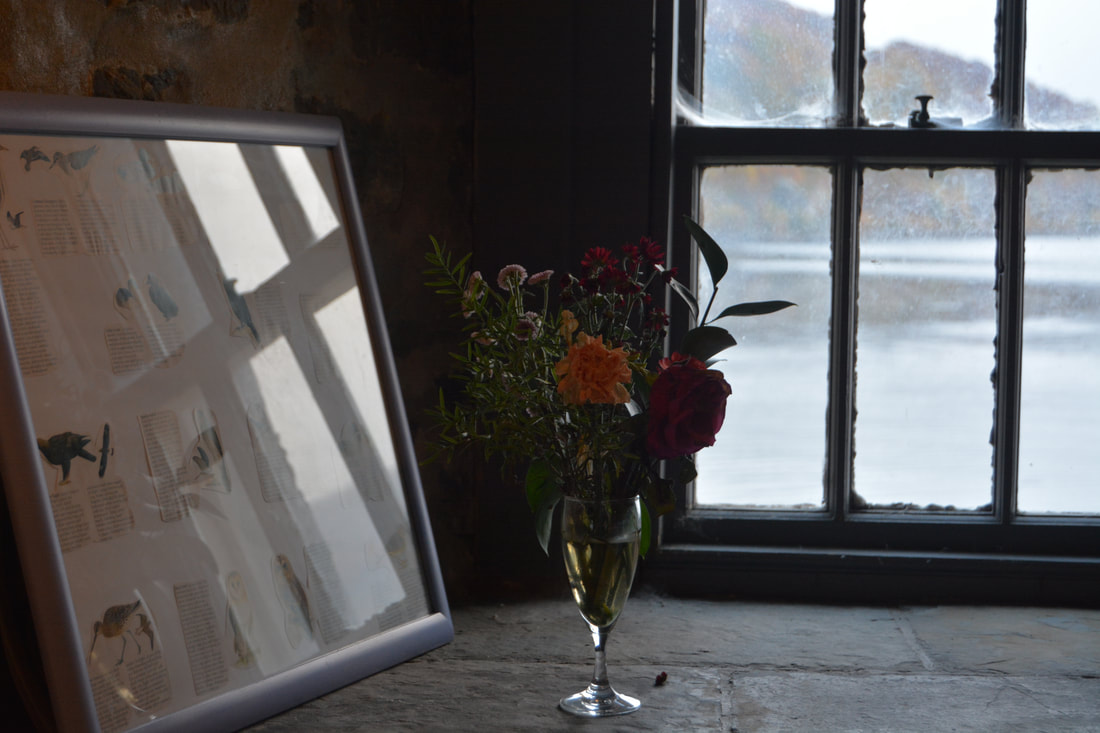Process Theology and Parkinson's Disease
Jay McDaniel
"I burst into tears, that you thought I was lazy, I thought you didn't know me at all..."
Process theology does not say a lot about the biology of Parkinson's Disease. The scientists know better. But we have a lot to say about people and family life. and about what really counts in life. We think that what really counts in life is richness of experience or, as we speak of it, strength of beauty.
Strength of beauty has nothing to do with standards of beauty in the consumer-driven marketplace. People with pretty faces, however defined, may lack strength of beauty because they have been preocuppied with being beautiful; and people without pretty faces may have lots of beauty because they are not trapped by always trying to be beautiful.
Strength of beauty has everything to do (1) with the quality of a people's hearts and souls as they face situations together and as they grow in their relationships with one another, and (2) with the more private sides of their lives, with what they do with our own solitariness, given the circumstances of our lives.
When Jesus was faced with the fact that his mission was failing and he may end up suffering on a cross instead of bringing about a community of love, he had strength of beauty. Of course we too often place Jesus on a high pedestal, forgetting his full humanity. Sometimes we forget that he was not a god but rather our brother. Perhaps you need more accessible examples of strength of beauty?
Family Relations
In any case, you'll find lots of strength of beauty in the video above. You'll hear beauty in the tone of her voice, in the story, and in her relationship with her daughter, Abigail. There's strength of beauty in Abigail's relation with her, too. Young people can have lots of strength of beauty and, in their way, be mentors to older people.
But we rightly sense that Valerie and Abigail are co-mentors, another name for which is family. In process theology that's part of what family means: a group of people who learn from each other through fidelity to the bonds of relationship. At its best church is family, sangha is family, mosque is family, temple is family, and family is family.
I often worried that since you were born after my illness had progressed to the point where I was no longer able to work as an attorney and do all the things I used to do, that you would never know the real me.
The myth of the perfect body is indeed a myth. It is not a myth in the good sense: a story that gives meaning to life. Rather it is a myth in the bad sense: a falsehood or figment of the imagination that has destructive consequences.
Each body is unique and all bodies are different. Bodies are forever and always in process, changing over time, in ways comfortable and uncomfortable. In life and also in death, our bodies are receptacles within whose horizons we learn some of life's deepest spiritual lessons: love, courage, power, frailty, enjoyment, intimacy, and letting go. They are temporary monasteries. We are inside our bodies and our bodies are inside us.
You can love your body but not like It
The key to life is not to have a perfectly healthy body all the time. Good luck on that! They key is to have a healthy relation with your body as best you can, in the bodily condition in which you find yourself. You can love your body, but you don't have to like it all the time. When you are dying it is all right to let it go.
The key is also to respect other people's bodies and delight in multiplicity. Bodies come in different shapes and sizes, modalities and capacities, and they deserve respect in their differences. Given certain tasks at hands and practical needs, bodies can be more or less abled.
But all bodies -- including Parkinson's bodies -- have integrity when seen with holy eyes. Holy eyes are not supernatural. They are deeply natural. They break free of stereotypes and preconceptions, in order to see the world lovingly. They are non-judgmental, free from fear, and free for love. A Buddhist will call them Bodhisattva eyes.
The real me
But the "real me" is never quite the same as a person's body. Valerie Graham worried that Abigail might never know her true self, her real me. This is a worry that many with Parkinson's disease face. They know their "real me" but they have to deal with the fact that others may now. In this sense they become spiritual teachers amid their difficulty. They are living invitations to moe past surface appearances into real-me recognition.
In process theology the soul -- the "real me" -- is connected with, but also different from, the brain and body. The soul is like the crest of a wave. It is always here-and-now and yet different at every moment. It is the seat of awareness which is carried by the brain and is also more than the brain. The soul has intentions and makes decisions, has feelings and responds to the world. It is who a person is, on the inside, from a first-person perspective.
Always we are in the process of becoming real-me's. Part of soul-making is to learn to have loving eyes: to learn to see things in non-judgmental, non-dominating, non-fearful ways. But eyes see things from a distance, even when loving. A deeper beauty lies in relationships between people which transcend vision and well up in feelings.
In these feelings -- say that between a mother and a daughter -- there is knowing but knowing is not simply knowing about each other. It is not simply having information. It is knowing with each other, a sharing a feeling and values. In the sharing there is a quiet kind of love. A feeling of the feelings of one another. We take on the better values of one another. In the video, Abigail takes on the values of Valerie.
Even now you sometimes tell me how tired you are of Parkinson's. I don't blame you. I am, too. And I remember being twelve and not wanting to know my Mom's problems, either.
This doesn't mean that love always wells up spontaneously or naturally or easily. It can well up within and amid the sheer struggle of living. In the grittiness of a life filled with happiness, to be sure, but also with, longing and loss, frustration and struggle.
Yes, so often it is in the grittiness that love is found. One of our columnists, a pediatrician turned priest named Teri Daily, says that when love emerges in this way, God is present. Indeed some process theologians would say that God becomes enfleshed, incarnate, in the grittiness. Some people might think of God as elevated and pure and aloof and alone. We process theologians think of God as really, really gritty. Teri Daily calls it incarnation.
But then, just a few months ago as we were discussing plans for your upcoming twelfth birthday party, you gave me the list of who you wanted to invite...I almost burst into tears again, because you knew me, Abigail, and I knew you, too.
In any case, God or no God, it is in the gritiness of love that we discover what is truly important. It is grittiness that we know things.
In process theology knowing is not knowing about things; it is sharing in moods and feelings, it is understanding the perspective of another and taking it on for yourself, in your heart. We are all connected, say the process theologians. Even if we are separate bodily, we are present in each other subjectively. This raises a deep and almost Buddhist-like question. A Zen Koan of sorts. Here it is:
Who has Parkinson's Disease?
To be sure, those whose bodies tremor; those who cannot walk or speak; know the disease much more deeply than the so-called able-bodied among us. But if we have eyes to see and hearts to feel we know that we all have Parkinson's Disease in the end. Noone escapes the vulnerability of death, a loss of control, a letting go into something deep and infnite. Eventually we all tremor. We all stop swallowing.
And strangely, perhaps harshly, that's part of life's beauty. We are all in it together. All family. The most mature response, the only reasonable one, is to love our neighbors as ourselves. Sometimes there's even a lot of joy in it.

